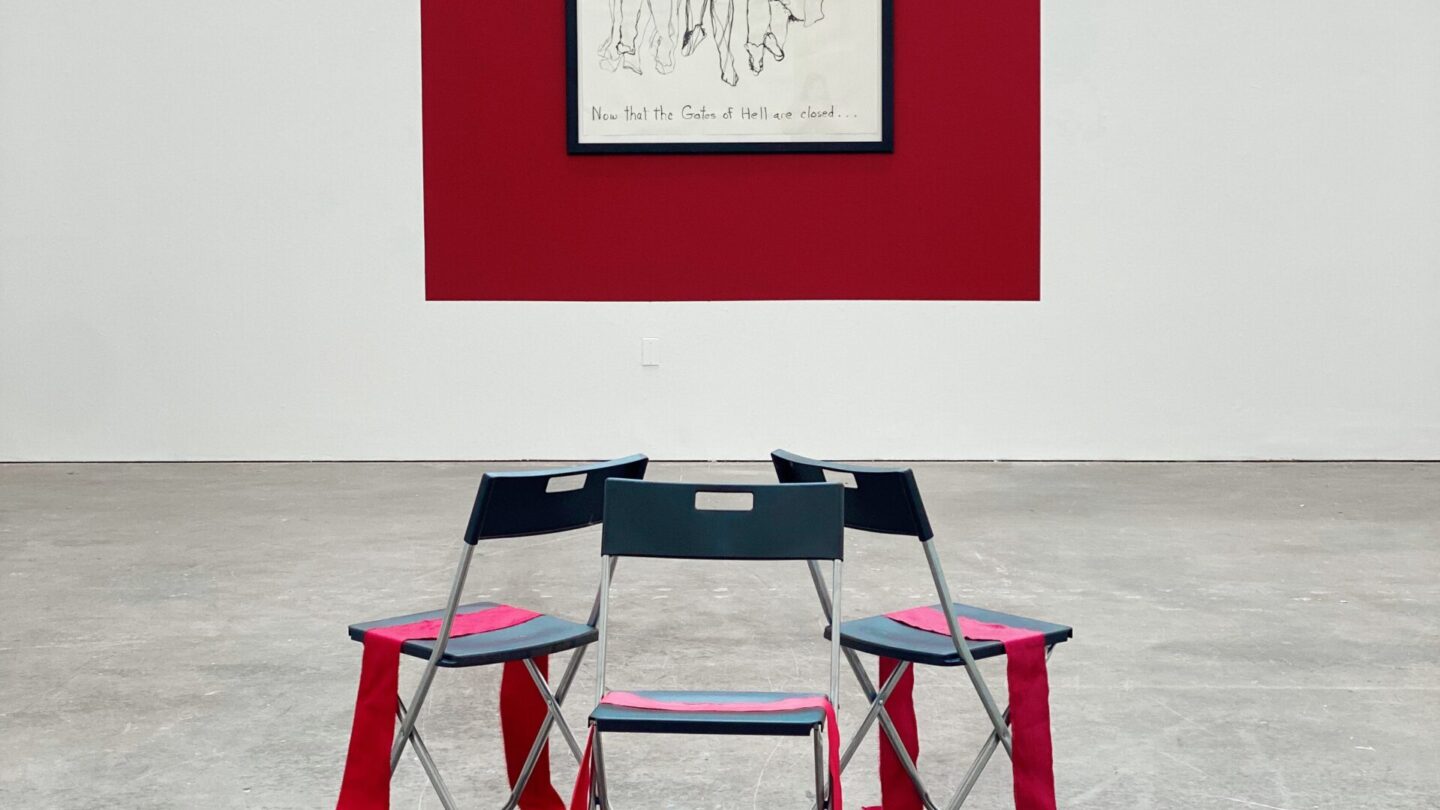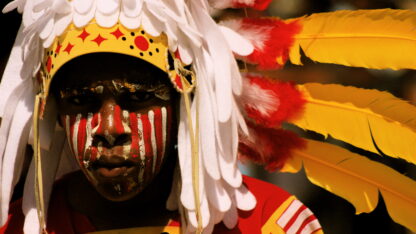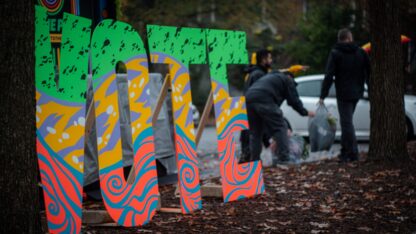Two Atlanta contemporary exhibits explore the identities and displacement of Indigenous peoples

Tom Belt of the Eastern Band of Cherokee Indians once said, “Among Native Americans, you don’t come from a place; you are of a place.” The identities of Indigenous people and their forced removal and displacement are explored in two new exhibitions at the Atlanta Contemporary: “Returns: Cherokee Diaspora and Art” and “You are Heleswv (Medicine),” on view concurrently through Sept. 4. “City Lights” producer Summer Evans recently discussed the exhibitions with curators Elisa Harkins and Dr. Ashley Holland, as well as Atlanta Contemporary’s executive director Veronica Kessenich.
Interview highlights:
On expanding an indigenous land acknowledgment into a broader gesture:
“We, Atlanta Contemporary, also followed in the path of other organizations and institutions in making a land acknowledgment to acknowledge the Muscogee Creek peoples, the land on which Atlanta Contemporary sits,” explained Kessenich. “But we also reached out to friend and colleague and curator Miranda Kyle to discuss what this acknowledgment could mean, not just as a statement, but as an active and engaging opportunity to truly acknowledge the land, and so this exhibition is a result.”
“I am Cherokee, so it made sense for me to focus on Cherokee people,” said Holland. “Elisa, you are Cherokee and Muscogee, so it almost seems obvious when we say it out loud.” Harkins added, “Also, after doing a site visit, it just became really obvious to me the erasure that had happened, the complete erasure of this history; that no one knows what the Trail of Tears is. It was pretty heartbreaking. So I felt like the more specific that I could get, the better.”
Symbols and nature elements illustrating the history of American soil:
“There’s some plants that are being shown in the Secret Garden, as well as some vessels with Muscogee language on it, and poems by Joy Harjo. So this is sort of like a reclamation of space. It’s also pointing to our traditional plant knowledge, and the plants that were grown in the Southeast, and how those plants are really special to us, and they hold language and they hold ceremony,” Harkins said.
She went on, “Nathaniel Cummings Lambert, his piece, really speaks directly to land, and he actually brought dirt from Cherokee, North Carolina, and put it in the space. And it really directly points to the erasure and the Trail of Tears and the forced removal of indigenous people from the Southeast to what was then called Indian territory because it was before statehood. And we now call it Oklahoma.”
On the meaning behind “You are Heleswv:”
“‘Heleswv’ means ‘medicine,’ and in our traditional indigenous ways, medicine could be a lot of different things. So medicine could be a song. Medicine could be a plant. It could be a person. You know, the effect that you get from someone that makes you feel good. So I wanted to title the show ‘You are Heleswv,’ really speaking to the artists that are in the show, that they are medicine.”
On featured work by Cherokee contemporary artist Luzene Hill:
“You can describe it as both really powerful and loud, but also very quiet and intimate, and I think that happens with both of the pieces that are in the show,” said Holland. “With ‘Traces and Wounds,’ aesthetically, it’s just a gorgeous work, but the longer time you spend with it and the more you read about it, you realize it’s having all of these conversations about not just violence against women, but violence against our culture, violence against the land … When you look at ‘Now the Gates of Hell are Closed,’ that isn’t just an indigenous conversation that’s being had there; it’s a conversation that talks about inherent patriarchy and misogyny that women of all backgrounds have experienced.”
The Atlanta Contemporary’s two concurrent exhibitions of work by indigenous artists are both on view through Sept. 4. More information about “Returns: Cherokee Diaspora and Art” can be found at atlantacontemporary.org/exhibitions/returns, and more on “You are Heleswv (Medicine)” can be found at atlantacontemporary.org/exhibitions/you-are-heleswv-medicine.








